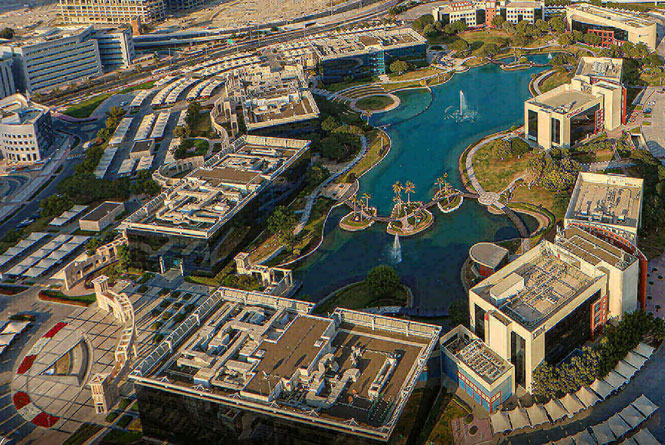Establishing a business in Abu Dhabi's free zones presents a compelling opportunity for entrepreneurs and multinational corporations alike. These specialized economic areas, designed to foster foreign direct investment and economic diversification, offer a streamlined, business-friendly environment unmatched in many parts of the world. An Abu Dhabi free zone company setup is more than just incorporating a business; it's about gaining a strategic foothold in a dynamic, oil-rich economy that serves as a gateway to the wider Middle East, Africa, and South Asia. The process is renowned for its efficiency, transparency, and the plethora of benefits extended to investors, making it a premier destination for global business. This article delves into the critical aspects you need to understand, from selecting the right jurisdiction to navigating the licensing process, ensuring you are well-equipped to make informed decisions for your commercial venture.

Before embarking on the process, it's crucial to understand what makes the Abu Dhabi free zone model so attractive. Free zones are designated geographical areas within the UAE where companies can be 100% foreign-owned, receive tax exemptions, and enjoy full repatriation of profits and capital. Unlike mainland companies, which typically require a UAE national as a majority shareholder, a free zone entity allows the investor to retain complete ownership and control.
Abu Dhabi boasts several world-class free zones, each with its unique focus and advantages. The twofour54 Abu Dhabi (now known as Creative Media Authority) caters to media and entertainment businesses. Abu Dhabi Global Market (ADGM), located on Al Maryah Island, is a premier financial center catering to banks, asset managers, and fintech companies. Others, like the Khalifa Industrial Zone Abu Dhabi (KIZAD) and Masdar City Free Zone, focus on industrial, logistics, and clean-tech enterprises, respectively. This targeted ecosystem means that regardless of your industry, there is likely a zone designed to support your specific business activities with tailored infrastructure and regulatory frameworks.
Selecting the appropriate zone is the most critical step in your Abu Dhabi free zone company setup journey. Your choice will impact your licensing costs, operational flexibility, and long-term growth potential. Key factors to consider include:
Business Activity: Each free zone has a predefined list of permitted activities. Ensure your intended business activity is allowed and supported in your chosen zone. ADGM is ideal for financial services, while twofour54 is perfect for a media production company.
Location and Infrastructure: Consider the logistical needs of your business. KIZAD offers direct access to Khalifa Port and is ideal for manufacturing and logistics. If your business requires a prestigious downtown address with high-end offices, ADGM might be the best fit.
Cost Structure: Analyze the total cost of setup and annual renewal. This includes license fees, office space rental (whether physical, flexi-desk, or virtual), and government service charges. Some zones offer more cost-effective packages for startups and SMEs.
Networking and Community: Being part of a zone with like-minded businesses can provide invaluable networking opportunities. A tech startup might thrive in Hub71 within ADGM, surrounded by other innovators and potential investors.
Conducting thorough due diligence at this stage will save significant time and resources later, ensuring your business is positioned for success from day one.
Once you've selected a free zone, the next step is to determine your company's legal structure and the type of license you require. Most free zones offer several options:
Legal Structures: The most common entity is the Free Zone Establishment (FZE), which is a limited liability company with a single shareholder. For multiple shareholders, a Free Zone Company (FZC) is the equivalent. Some zones also offer branches of existing foreign companies or offshore entities.
License Types: Free zones typically issue three main categories of licenses:
Commercial License: For trading activities, import/export, and general trading companies.
Industrial License: For manufacturing, processing, and industrial production.
Professional/Service License: For service-oriented businesses, consultants, artisans, and professionals.
The specific requirements for each license and structure vary by zone. For instance, some professional licenses may only require a virtual office package, while an industrial license will mandate a physical facility within the zone. Clarifying these requirements with the respective free zone authority is essential for a smooth company setup process.

The actual process of Abu Dhabi free zone company setup is remarkably streamlined, often completed within a few weeks. While the exact steps can vary slightly, the general procedure is as follows:
Application and Initial Approval: Submit an application form for your chosen business activity and proposed company name. Upon preliminary screening, the authority will issue an initial approval, reserving the name and granting permission to proceed.
Document Submission: Prepare and submit the required legal documents. This typically includes copies of shareholders' and directors' passports, a bank reference letter, a business plan, and a No Objection Certificate (NOC) from any current UAE sponsor if applicable.
MOA and Lease Agreement: Draft and sign the Memorandum of Association (MOA) as stipulated by the free zone. Simultaneously, you will select and lease your office space (physical, flexi, or virtual).
License Payment and Issuance: Pay the required fees for your chosen license and the government charges. Upon payment, the free zone authority will issue your official trade license.
Post-License Formalities: After receiving the license, you can proceed to open a corporate bank account with a local or international bank in the UAE. You may also need to apply for UAE resident visas for yourself and your employees, a key benefit that facilitates talent acquisition and relocation.
Many free zones offer dedicated customer service and business setup consultants to guide you through each step, minimizing bureaucratic hurdles.
Successfully completing your Abu Dhabi free zone company setup is just the beginning. Maintaining good standing requires adherence to ongoing compliance regulations. The primary requirement for most free zones is the annual renewal of your trade license, which involves paying the renewal fees and confirming your office space agreement. Furthermore, companies are required to maintain proper accounting records.
While audit requirements vary—ADGM, for example, has specific reporting obligations for its entities—many other free zones do not mandate annual audited financial statements to be submitted to the authority, though it is considered best practice. Crucially, one of the most significant advantages you must leverage is the extensive network of Double Taxation Treaties (DTTs) that the UAE has signed. This network can help you optimize your global tax efficiency and protect your profits from being taxed twice, making your Abu Dhabi free zone entity a powerful tool for international expansion.
In conclusion, an Abu Dhabi free zone company setup offers a robust platform for growth, innovation, and market access. By carefully selecting the right zone, understanding the legal frameworks, and following the streamlined process, investors can unlock a world of opportunity with minimal barriers. The combination of full ownership, tax benefits, and a strategic location makes Abu Dhabi not just a place to do business, but a place to build a legacy.










Zhuoxin Consulting relies on its Chinese service network and Dubai executive team to provide professional one-stop business services without communication barriers for Chinese companies to enter the Middle East market. Its business covers company establishment and maintenance, accounting and taxation, bank account opening, PRO services and business services.
Zhuoxin Consulting has high-quality business resources and maintains close cooperation with many free zones, bankers and tax departments in the UAE to escort your expansion in the Middle East market.
 Add WeChat
Add WeChat